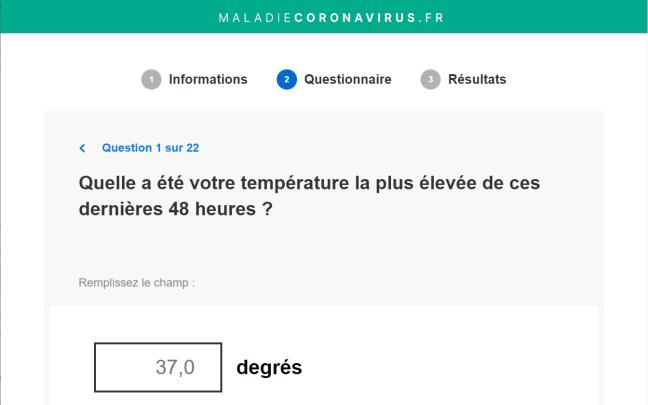On 20 March 2020, the Pasteur Institute, Greater Paris University Hospitals (AP-HP) and the chatbot start-up Clevy, released the so-called Covid-bot, an open source COVID-19 auto-diagnosis chatbot. The Covid-bot allows respondents to assess their risk of COVID-19 contamination by filling a questionnaire.

How does it work?
Covid-bot users answer 23 questions on current symptoms, medical history, as well as the user’s age and measurements (height/weight) in order to perform the risk analysis on COVID-19 contamination. After completing the test, Covid-bot users can receive three types of notifications:
- A ‘risky case’ notification redirecting the user to emergency services;
- A ‘suspect case’ notification redirecting the user to telemedicine services; or,
- A ‘non-risky case’ notifications which encourages users to contact their general practitioner if symptoms persist or get more serious.
The Covid-bot algorithm was elaborated by the COVID-TELE working group which gathers experts from the AP-HP and the Institut Pasteur of the Rennes University Hospital, Lille University Hospital and Angers University Hospital with the contribution of general practitioners, emergency physicians, infectious diseases specialists, eHealth engineers and teams from teleconsultation and remote monitoring platforms. As of now, the Covid-bot is only available in French. The Covid-bot is available online on the Maladiecoronavirus.fr website. However, it does not substitute a medical examination!
The COVID-19 auto-diagnosis chatbot, an open source software
The Covid-bot algorithm is available on GitHub under a MIT licence.
Even if the target remains mainly the general public via the online chatbot, it is also available to companies and communities willing to add it to their site or intranet. Covid-bot can also be used on WhatsApp, Twitter and on Facebook Messenger.
In an interview to the French newspaper Les Echos, Salim Jernite, the CEO of the start-up Clevy, claimed that the chatbot counted more than 70,000 unique users since the beginning of March, and a million messages exchanged. The Clevy CEO would be in discussion with several countries to adapt the COVID-19 auto-diagnosis chatbot.
Data security
Once users completed the survey, the anonymous data collected by the Covid-bot is transferred to the Pasteur research institute for statistical purposes. To ensure data security, Covid-bot users’ data is stored on a specific server with Health Data Hosting Approval (HADS) certification.
More information

